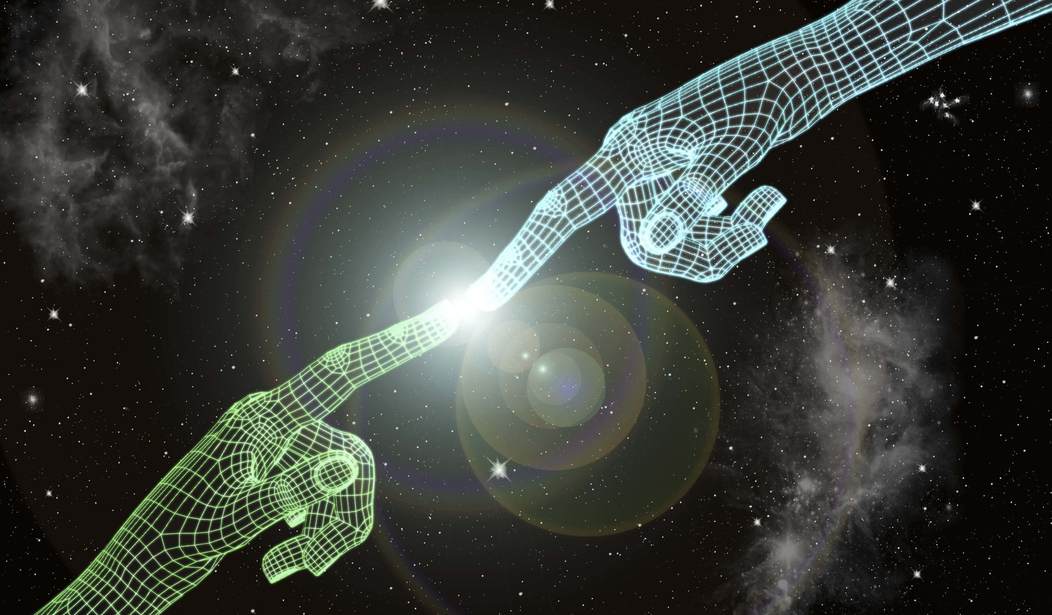Christians often get a bad rap when it comes to science. Long before Bill Nye went head-to-head with Ken Ham, believers were mocked for not accepting science — or evolution or The Flood or climate change.
But Christianity and science actually work very well together. The scientific method was developed over long centuries during the Christian Middle Ages, and even today many cutting-edge scientists express a firm belief in Jesus Christ. The hard-nosed, empirical study of nature was born among those who believed in miracles.
Science from Faith
In his book The Genesis of Science: How the Christian Middle Ages Launched the Scientific Revolution, James Hannam explains how Galileo’s revolutionary understanding of motion and the heavens came from a long tradition of medieval natural philosophy. Obscure thinkers like John Buridan tried to explain the workings of nature, laying the groundwork for modern science.
Hannam brilliantly explodes the myth that there was no scientific progress between the time of ancient Greeks and the Scientific Revolution. Europe witnessed a population explosion during the Early Middle Ages, due to innovations like the plow, the horseshoe, crop rotation, and windmills. The development of ideas was even more impressive, however.
Hannam lays out four “cornerstones” which unleashed the scientific method during the Middle Ages. Then, as now, universities provided the setting and support for learning and investigation. Better technology enabled a higher standard of living and better scientific equipment. Certain ideas, like the notion that God’s free choice allowed Him to make natural laws in any way He saw fit, encouraged investigation of how the world actually works. Most importantly, medieval thinkers combined mathematics with natural philosophy — something anathema to the ancient Greeks.
Aristotle believed that God was a prime mover, and the universe operated by the fixed laws of deduction. Rather than investigate nature through experiments, he argued like a philosopher from first principles to final conclusions. This method did wonders for logic, but proved an absolute failure when it came to science.
Medieval thinkers like the Oxford Calculators, however, encouraged experimentation with the natural world. This empirical mindset led them to bring mathematics to their reasoning about nature — a huge step for understanding how the world really works.
The arguments of Jean Buridan — a thinker from the 1300s — show the first steps toward Isaac Newton’s understanding of momentum and inertia in physics. In the 1400s, Nicholas of Cusa suggested that the earth is moving and encouraged exact standards of scientific measurement.
Science developed in fits and starts, over a thousand years. Galileo Galilei, Nicolaus Copernicus, and Johannes Kepler — all very Christian men themselves (Copernicus was a priest) — launched the “Scientific Revolution” only by standing “on the shoulders of giants.”
Christian Ideas Support Science
Even if science was born during the Christian Middle Ages, that in and of itself may not prove that the Christian faith supports science. Nevertheless, certain Christian beliefs actually inspired scientific investigation and continue to do so today.
The idea of miracles — far from undermining science — implicitly assumes that there is a natural order to the universe, albeit one which from time to time is interrupted. Jesus’ resurrection from the dead is more impressive because this one event, out of billions of biological phenomena, transgresses the laws of biology. A miracle would not be a miracle if there were no natural laws, or if the human mind could not be relied upon to understand them.
According to Christian doctrine, men and women are made “in the image of God.” This means that our minds have the ability to “think God’s thoughts after Him,” in the words of Johannes Kepler. The understanding of man as made in God’s image allows for a natural connection between human reason and God’s reason behind the laws of nature — a connection lacking in both some Eastern philosophies and strong Darwinism.
If Darwinism is correct, and evolution driven by random natural selection explains the origin of mankind, our minds evolved for survival, not for truth. There is no fundamental reason why our minds should understand the laws behind the world, except as a survival mechanism.
Finally, many of today’s ground-breaking scientists take the motivation for their work from their Christian faith. Geneticist Francis Collins, who led the Human Genome Project and is currently director of the National Institutes of Health, explains his motivations in his book The Language of God: A Scientist Presents Evidence for Belief. Former geophysicist Stephen C. Meyer takes it further, presenting new scientific evidence for intelligent design. The best science argues for a Creator, in his view.
What About Evolution?
Many think you cannot be a Christian and also believe in evolution. A true Christian cannot believe in Darwinism — the idea that everything in the universe is caused by random chance and only developed through evolution-like processes. But that does not mean Christians must reject the scientific theory of evolution wholesale. C.S. Lewis did not, arguing in “The Problem of Pain” that God could have directed evolution and added a soul to humans at the critical moment.
Further, St. Augustine and Galileo Galilei present evidence that Christians throughout history have been able to reconcile the latest scientific evidence with orthodox Christian belief. In A Literal Interpretation of Genesis, Augustine encourages Christians to present their faith in a compelling way to unbelievers. When the meanings of certain Bible verses are difficult to understand, “different interpretations are sometimes possible without prejudice to the faith we have received.” Seven 24-hour periods is one legitimate way to interpret Genesis 1, but there are many others — even just from a close reading of the Biblical text.
Galileo, in his “Letter to the Grand Duchess Christina,” encourages Christians to reconcile Bible passages with claims “soundly demonstrated” by “the sages of this world.” Famously, Galileo said that the Bible is not a science textbook, quoting Cardinal Baronius who said that “the Bible tells us how to go to heaven, not how the heavens go.”
There are strong scientific arguments for and against a worldwide flood and for and against evolution. Christians may accept that the Genesis flood only destroyed Mesopotamia — which to Noah would have been the whole world — and that God directed a form of evolution. There is copious room for debate on the days of creation in Genesis, as presented in John Lennox’s Seven Days that Divide the World.
Faith and science are not at odds, even if Bill Nye wishes to portray believers as unscientific. With evolution and the flood, there are many interpretations of the Bible’s historical text. Christians should reinforce their historical reputation and go where the evidence leads.









Join the conversation as a VIP Member